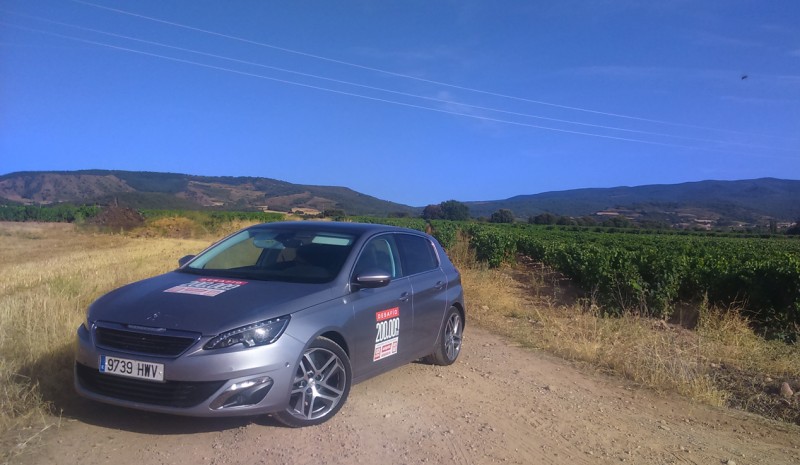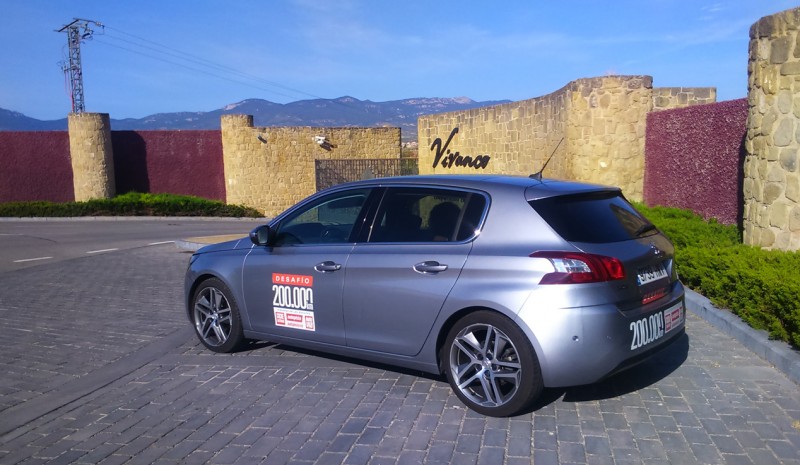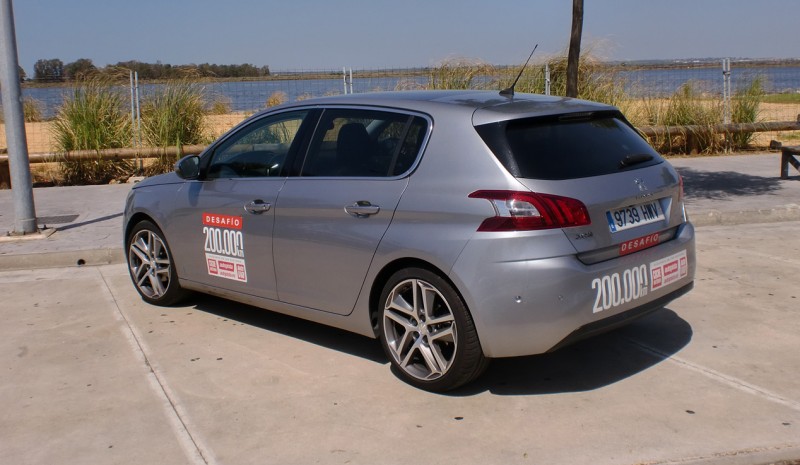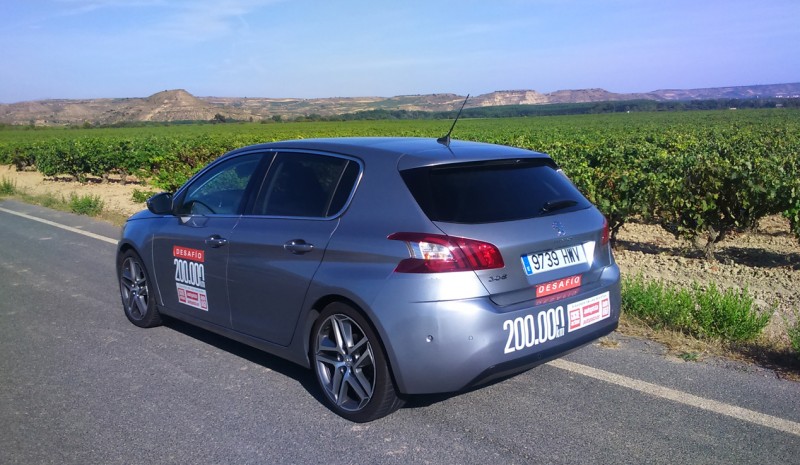Peugeot 308 1.2 PureTech 130, long-term test: over 150,000 km
Exceeded 150,000 km, the Peugeot 308 1.2 Puretech 130 hp pocket the final stretch of his long-term test to end at 200,000.
When your car reaches 150,000 km many drivers initiate a period of reflection on whether or not to replace it. Sometimes they have passed no less than 6 or 8, in others even more. It enters a region perceived as ‘at risk’ to the possible occurrence of faults, if they have not already done so. Also a increased maintenance costs, associating operations as replacing belt -a distribution from 120,000 km usually cambiarse- and with it, of elements such as the water pump that make the bill can be elevated.
However, as users 308 Peugeot 130 Allure 1.2 PureTech, we could hardly open the period in which the change of vehicle weighing because, simply, continues excellent results. For example, it remains to present an occasion when a fault or leave it parked slope of a crane. And visits dealer have been normally scheduled: O coinciding with appropriate revisions, or to visit the tinkerer -three times to solve small strokes parking- and replace worn items discs, shock absorbers and tires, any tire touched … -.
Which they were made in order to solve small mechanical fault remain minimal. Already served 100,000 km ABS sensor or a cuff repaired. We only went back to ask for the intervention of the mechanic to fix a problem with the radio.
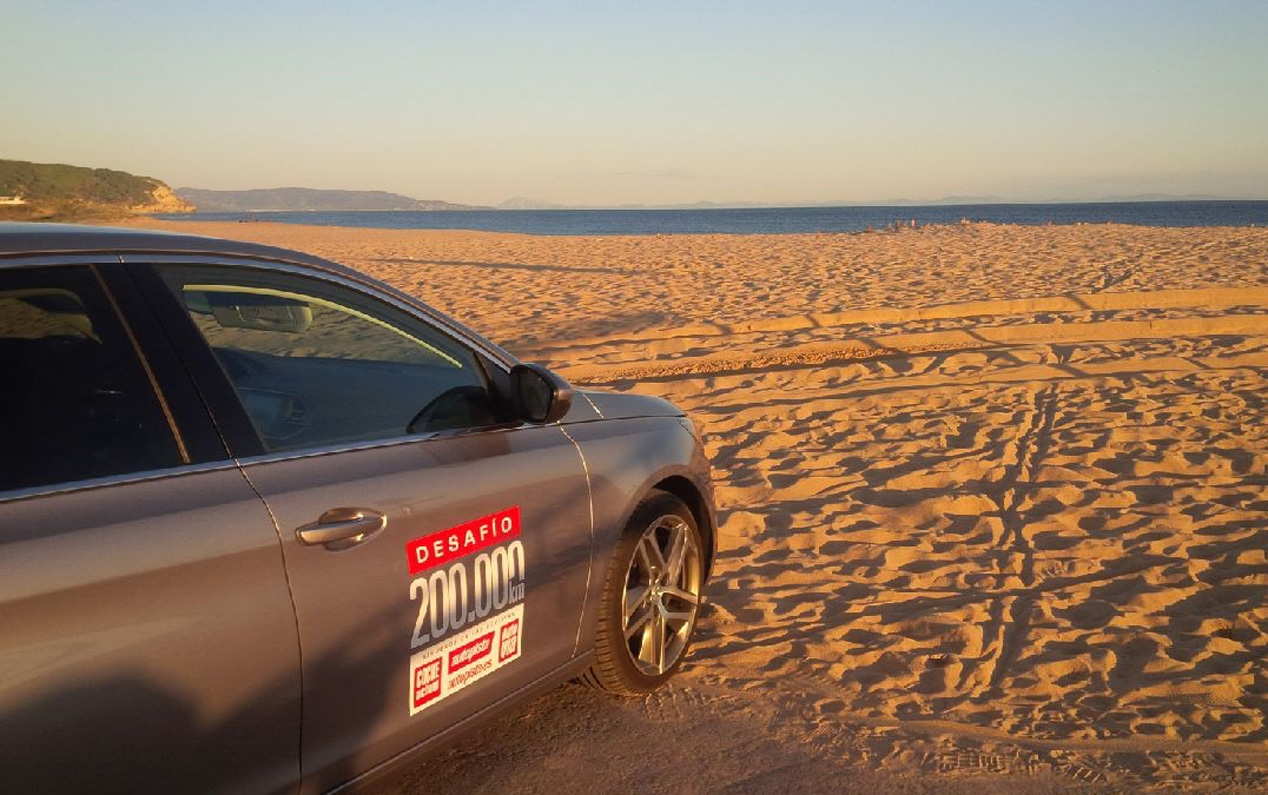
Peugeot 308 1.2 Puretech: no apparent scuffs
The interior elements susceptible to acknowledge use as seats or steering wheel continue to show, both sight and touch, look great. And, if anything, only some areas leather second hoop have a more apparent brightness caused by rubbing with the hand.
As for the frame, perhaps a few kilometers there are to consider replacing shock absorbers -the current replenishment is the first used-, while we see no reason to change even disks, etc.
For the first time the engine has stopped be around 140 hp on the dyno for, far exceeding even the official figure of 130 CV, get closer to it. The causes? It is probably affecting him, as with turbocharged engines heat -28 ° C at the time of taking the wheel data- because we do not perceive any problems. However, it has been this time at 133 HP and 25.9 mkg on the dyno has its impact on the provision. On the other hand, similar to those provided by this car this time records are not very different from those obtained with 2,130 km in the first steps of this long-term test.
With the 170,000 achieved, the front tire wear made us go to the shop to replace. We resort again and at the rear axle, the Michelin Pilot Sport 3 225/40 R18, which as good results in terms of grip and longevity are providing. In addition, we repair one rear parking sensor, affected by a -two impact of their three wires had been cortados- and review wires change, which has been improved, especially inserting the second gear.
With 180.000 km the Peugeot 308 faces his visit to the workshop more substantial. A usual interventions that match the 40,000 km for example, those involving the substitution of bujías- adds the distribution kit.
Maybe after 170,000 km: Engine response 1.2 three-cylinder gasoline often surprises drivers not warned of its architecture and its displacement by the way pushing.
The worst after 170,000 km: Sound equipment fails, even after physically replaced the radio. It is a software problem probably affects us intermittently.
Peugeot 308 1.2 PureTech: 150,000 km test against 100,000 km
| Peugeot 308 1.2 PureTech | 100,000 km | 150,000 km |
| Maximum power | 139.2 hp at 5,090 rpm | 133.0 hp at 4,670 rpm |
| maximum torque | 27.2 mkg at 2890 rpm | 25.9 mkg at 2990 rpm |
| Acceleration 0-1000 meters | 30.8 s | 31.8 s |
| Braking from 120 km / h | 56.9 m | 53.9 m |
| Loudness at 120 km / h | 68.9 dB | 69.8 dB |
| Overtaking 80 to 120 km / h | 12,7 s | 14,9 s |
| Consumption city | 8,1 l / 100 km | 7.9 l / 100 km |
| Consumption Highway | 6.0 l / 100 km | 6.0 l / 100 km |
| Elk Test | 73.9 km / h | 76.6 km / h |
| eslalon | 8.5 s | 8.4 s |

